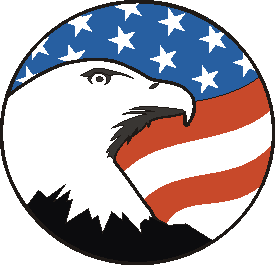Tuesday, December 10, 2013
The Journals of Lewis and Clark Discussion Questions
Thursday, December 5, 2013
Sunday, December 1, 2013
'Dear Georgie'
Thursday, November 21, 2013
The Political Parties
Major Leader: Barack Obama
Big /Key Issues:
-Civil Rights
-Education
-Energy Independence
-Environment
-Health Care
-National Security
-Jobs and the Economy
The Republicans
Major Leader: Mitt Romney
Big/Key Issues:
-Economy
-National Defense
-Health Care
-Education
-Energy
-Courts
The Libertarians
Major Leader: Geoffrey Neale
Big/Key Issues:
-Crime and Violence
-Environment
-Family Budget
-Gun Laws
-Immigration
-Taxes
-Privacy
-Immigration
The Green Party
Major Leader: Natalie Louise Bennett
Big/Key Issues:
-Feminism and Gender Equity
-Respect for Diversity
-Future Focus and Sustainability
-Ecological Wisdom
The Reform Party
Major Leader: David Collison
Big/Key Issues:
-Constitutional Rights
-Education
-Government and Ethics
-Energy Policy
-Foreign Policy
-National Security
-Social Issues
The Socialist Party
Major Leader: Greg Pason
Big/Key Issues:
-Freedom and Equality
-Full Employment
-Worker and Community Control
-Ecological Harmony
-Cultural Freedom
Tuesday, November 19, 2013
Washington Heads the New Government
- Judiciary Act of 1789
Own Definition: This started the forming of the basic structure of the Supreme Court in order to tackle constitutional issues at that moment.
- Alexander Hamilton
Own Definition: He was chosen to handle financial funds and issues.
- Cabinet
Own Definition: These people were specialized in specific departments and they helped the president make decisions concerning their department.
- Bank of the United States
Own Definition: Handled the financial areas of the country.
- Democratic Republican
Own Definition: Who sided with Jefferson. He wanted there to be more power in the states government than the central government.
- Two-Party System
Own Definition: Two parties that had totally different views from one another.
- Protective Tariff
Own Definition: Goods produced in Europe and sent to the US were taxed.
- Excise Tax
Own Definition: The protective tariff was formed in order to encourage production in the US but Hamilton decided to place a tax on the product's manufacture, sale, or distribution, which was not really in favor of the public.
Friday, October 25, 2013
War: Who Decides?
Thursday, October 17, 2013
Constitutional Convention Review
1. What is a delegate?
A person or group of people chosen to represent a state.
2. When and where did delegates go to discuss the new government of the United States?
The delegate went to Philadelphia on May during the year 1787 to discuss the new government.
3 - 4.
What state is pictured to the left? Virginia What is this state’s plan for a new federal government? Decide to create a whole new government. They can tax the people and also regulate trade. The federal government can also veto state laws. There are three different branches of government and the legislator has two houses. Also the number of representatives were chosen by the population of each state. | |
What state is pictured to the left? New Jersey What was this state’s plan for a new federal government? Decide to reform the Articles of Confederation. Congress can tax and can also regulate trade. Three branches of government. One house in congress. Every state gets one vote. |
5. Considering the two plans above, how did the Constitutional Congress decide on the structure of the new federal government? What was this plan called?
The Legislative Branch will have two houses. The House of Representatives and The Senate. The House of Representatives is based on the population of each state and also every state can have two senators. Both of these also made laws. This new structure of the federal government is called The Great Compromise.
6. The House of Representatives has Representation chosen based on the population of each state.
7. The Senate is made up of two representatives from each state.
8. How did the founding fathers decide about the representation of slaves in the new government?
Since the founding fathers could not end slavery, they decided to make the slaves part of the population. They decided that one slave counted as 3/5's of a person. 5 slaves would equal 3 white men meaning that 3 slaves would equal 1 count in the population.
Monday, October 7, 2013
Section 5.1 Vocabulary / Important Terms
Thursday, October 3, 2013
Review Questions
Thursday, September 26, 2013
A Letter Home
Dear John,




_logo.svg/619px-Green_Party_(United_States)_logo.svg.png)

